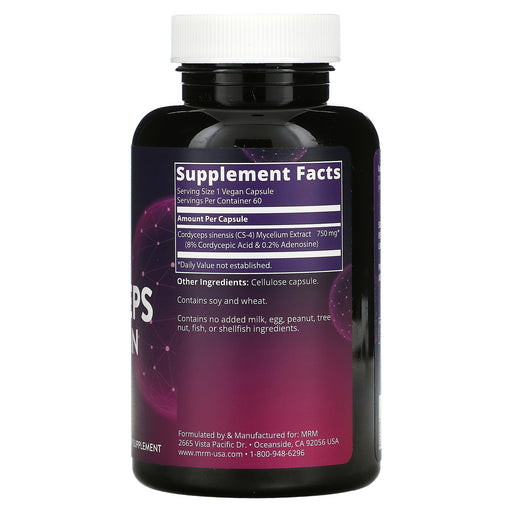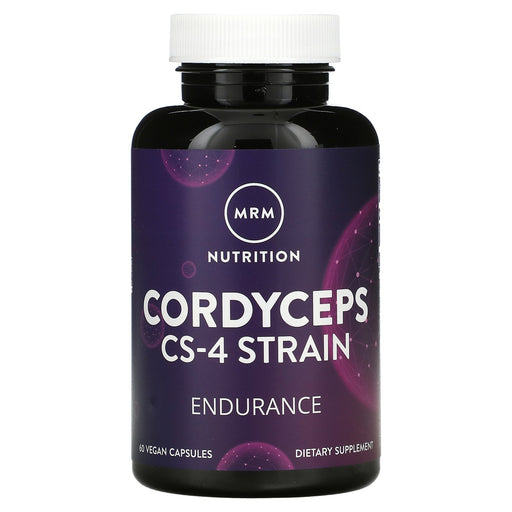
Unleashing the Potential of Cordyceps for Vitality, Endurance, and Overall Well-Being
Cordyceps, a genus of medicinal mushrooms, has been revered in traditional Chinese medicine for centuries due to its potent adaptogenic properties and potential health benefits. These fascinating fungi have gained widespread attention in recent years for their ability to support energy levels, endurance, immune function, and overall vitality. By incorporating cordyceps supplements into your wellness routine, you can tap into the power of these ancient remedies to help you feel your best and perform at your peak.
The Unique Properties of Cordyceps
Cordyceps mushrooms are unique in their growth habits and chemical composition. The most well-known species, Cordyceps sinensis, grows on the larvae of caterpillars in the high-altitude regions of the Himalayas. However, due to sustainability concerns and the rarity of wild cordyceps, most supplements today are derived from a cultivated strain called Cordyceps militaris.
Cordyceps contains a wide array of bioactive compounds, including:
- Cordycepin: A nucleoside analog with potential anti-inflammatory, antioxidant, and immunomodulatory properties.
- Polysaccharides: Complex carbohydrates that may help support immune function and overall health.
- Adenosine: A nucleoside involved in energy transfer and the regulation of various physiological processes.
- Sterols: Compounds with potential anti-inflammatory and immunomodulatory effects.
- Amino Acids: Building blocks of proteins that support various aspects of health and wellness.
These unique compounds work synergistically to provide the potential health benefits associated with cordyceps supplementation.
Benefits of Cordyceps Supplementation
Incorporating cordyceps supplements into your wellness routine may offer several potential benefits, including:
- Energy and Endurance Support: Cordyceps has been traditionally used to help fight fatigue, increase stamina, and support overall energy levels, making it a popular choice among athletes and active individuals.
- Immune System Support: The polysaccharides and other bioactive compounds in cordyceps may help support immune function and the body's natural defenses against external stressors.
- Antioxidant Protection: Cordyceps contains antioxidant compounds that may help protect cells from damage caused by free radicals and oxidative stress, supporting overall health and well-being.
- Respiratory Health: Some studies suggest that cordyceps may help support lung function and respiratory health, particularly in individuals with breathing difficulties or exercise-induced bronchial constriction.
- Adaptogenic Properties: As an adaptogen, cordyceps may help the body adapt to physical and mental stressors, promoting overall resilience and well-being.
Choosing the Best Cordyceps Supplement
When selecting a cordyceps supplement, it's essential to choose a high-quality product from a trusted brand. Consider the following factors:
- Species and Strain: Look for supplements that contain Cordyceps militaris or a standardized extract of Cordyceps sinensis, as these are the most well-studied and widely available forms.
- Quality and Purity: Opt for supplements manufactured in GMP-certified facilities, free from contaminants and impurities, and third-party tested for purity and potency.
- Bioavailable Forms: Choose supplements that contain highly bioavailable forms of cordyceps, such as extracts standardized for cordycepin content or organic cordyceps mushroom powder.
- Synergistic Formulas: Some cordyceps supplements may include other adaptogenic herbs or mushrooms, such as reishi or ashwagandha, for enhanced benefits and synergistic effects.
- Brand Reputation: Select supplements from reputable brands with a history of producing high-quality, science-backed products and a commitment to transparency and safety.
Tips for Incorporating Cordyceps Supplements into Your Wellness Routine
To maximize the benefits of cordyceps supplements and support your overall health and well-being, consider the following tips:
- Start with a Low Dose: If you are new to cordyceps supplementation, begin with a lower dose and gradually increase over time to assess your individual tolerance and response.
- Take Consistently: To experience the full potential benefits of cordyceps, take your supplement consistently as directed, typically once or twice daily.
- Pair with a Balanced Lifestyle: While cordyceps supplements can provide valuable support, they should be used in conjunction with a balanced diet, regular exercise, stress management, and other healthy lifestyle habits.
- Consider Time of Day: Some people find that taking cordyceps supplements in the morning or early afternoon helps provide a natural energy boost without interfering with sleep.
- Consult with a Healthcare Professional: Before starting any new supplement regimen, consult with a healthcare professional, especially if you have pre-existing health conditions, allergies, or are taking medications.
Experience the Ancient Wisdom and Modern Potential of Cordyceps with Health Orchard
Unleash the power of cordyceps mushrooms for your health and well-being with Health Orchard's selection of high-quality, science-backed cordyceps supplements. Our carefully curated collection offers a range of options to suit your individual needs and preferences, from organic mushroom powders to standardized extracts.
Witness the potential of these ancient adaptogenic remedies to support your energy levels, endurance, immune function, and overall vitality. With a commitment to quality, transparency, and your individual wellness goals, Health Orchard is your trusted partner in harnessing the wisdom of nature for optimal health and performance.
Frequently Asked Questions about Cordyceps
1. What does Cordyceps supplement do?
Cordyceps is a medicinal mushroom traditionally used in Chinese medicine and now available as a dietary supplement. It is believed to offer various health benefits:
- Enhances energy and stamina: Cordyceps may improve athletic performance and reduce fatigue by increasing the body's production of ATP (adenosine triphosphate), the primary energy source for cells
- Boosts immune function: Cordyceps contains compounds that may stimulate the immune system and help the body fight off infections and diseases
- Anti-aging properties: It may help protect against oxidative stress and inflammation, which are associated with aging and age-related diseases
- Respiratory health: Cordyceps has been used to support lung function and may be beneficial for respiratory conditions like asthma and bronchitis
- Cardiovascular health: Some studies suggest that cordyceps may help lower cholesterol levels and improve heart health
- Blood sugar regulation: Cordyceps may help regulate blood sugar levels and improve insulin sensitivity, potentially benefiting people with diabetes
2. Who should not take Cordyceps?
While cordyceps is generally considered safe for most people, some individuals should exercise caution or avoid taking cordyceps supplements:
- Pregnant and breastfeeding women: Due to limited safety data, it is best to avoid cordyceps during pregnancy and lactation
- Individuals with autoimmune disorders: Cordyceps may stimulate the immune system, which could potentially worsen autoimmune conditions like lupus, multiple sclerosis, or rheumatoid arthritis
- People with bleeding disorders or taking blood-thinning medications: Cordyceps may have anticoagulant properties, increasing the risk of bleeding when combined with blood thinners
- Those scheduled for surgery: It is recommended to stop taking cordyceps at least 2 weeks before surgery to minimize the risk of bleeding complications
- Individuals with a history of cancer: Some studies suggest that cordyceps may have anti-tumor properties but its effects on different types of cancer are not well-established. Consult a healthcare professional before using cordyceps if you have a history of cancer
3. Can you take Cordyceps every day?
Yes, cordyceps supplements can be taken daily, as long as you follow the recommended dosage instructions provided by the manufacturer or your healthcare professional. Cordyceps is generally considered safe for long-term use when consumed in appropriate amounts. The typical dosage for cordyceps supplements ranges from 1,000 to 3,000 mg per day, divided into two or three doses. However, it is essential to start with a lower dose and gradually increase to assess your tolerance and avoid potential side effects. As with any supplement, it is best to consult with a healthcare provider to determine the most suitable dosage for your individual needs and health status.
4. Is Cordyceps good for the liver?
Cordyceps has been traditionally used to support liver health and may offer potential benefits for the liver:
- Antioxidant properties: Cordyceps contains antioxidants that may help protect liver cells from damage caused by free radicals and toxins
- Anti-inflammatory effects: It may help reduce inflammation in the liver which is often associated with various liver diseases
- Improved liver function: Some studies suggest that cordyceps may help improve liver function markers and support the liver's detoxification processes
- Potential hepatoprotective effects: Animal studies have shown that cordyceps may help protect the liver from damage caused by various toxins and medications
While these potential benefits are promising more human research is needed to fully understand the effects of cordyceps on liver health. If you have a pre-existing liver condition or are taking medications that affect liver function, consult with a healthcare professional before taking cordyceps supplements.
5. Is cordyceps safe for kidneys?
Cordyceps is generally considered safe for kidney health when taken in recommended doses. In fact, some studies suggest that cordyceps may offer potential benefits for kidney function:
- Improved kidney function markers: Animal studies have shown that cordyceps may help improve various markers of kidney function, such as creatinine levels and blood urea nitrogen
- Antioxidant and anti-inflammatory properties: Cordyceps contains compounds that may help protect kidney cells from oxidative stress and inflammation, which are often associated with kidney damage
- Potential nephroprotective effects: Some studies suggest that cordyceps may help protect the kidneys from damage caused by various toxins, medications, and chronic diseases like diabetes
However, it is essential to note that more human research is needed to confirm these potential benefits. If you have pre-existing kidney disease or are taking medications that affect kidney function, consult with a healthcare professional before taking cordyceps supplements to ensure safety and appropriate dosing.
6. Is cordyceps good for fatty liver?
Cordyceps may offer some potential benefits for individuals with fatty liver disease:
- Improved liver function: Some studies suggest that cordyceps may help improve liver function markers and reduce liver enzymes, which are often elevated in fatty liver disease
- Antioxidant and anti-inflammatory properties: Cordyceps contains compounds that may help protect liver cells from oxidative stress and inflammation, which are key factors in the development and progression of fatty liver disease
- Regulation of lipid metabolism: Animal studies have shown that cordyceps may help regulate lipid metabolism and reduce the accumulation of fat in the liver
- Potential hepatoprotective effects: Cordyceps may help protect the liver from damage caused by various toxins and metabolic disorders, which can contribute to fatty liver disease
While these potential benefits are promising, more human research is needed to fully understand the effects of cordyceps on fatty liver disease.










